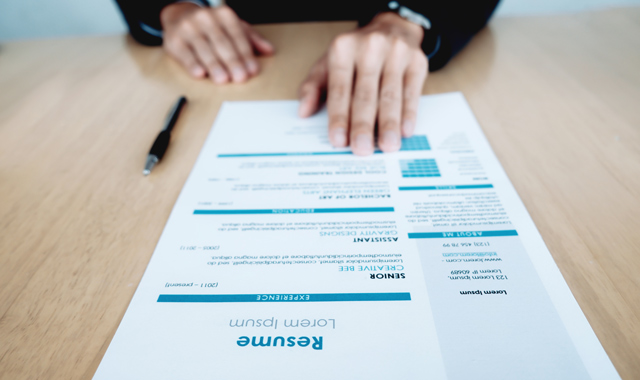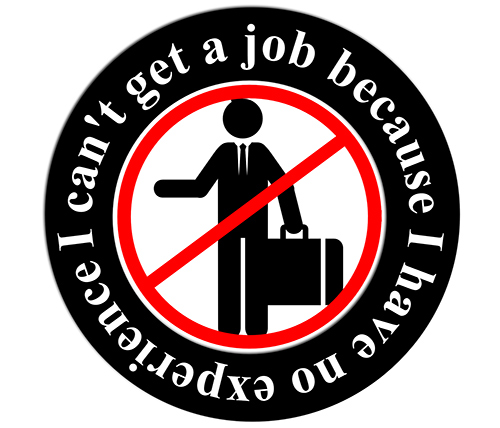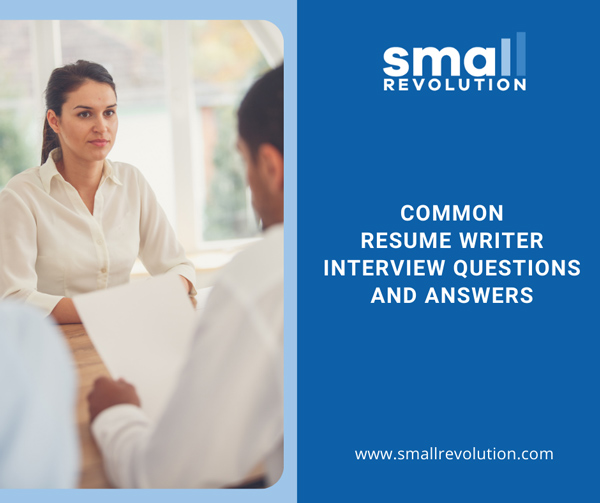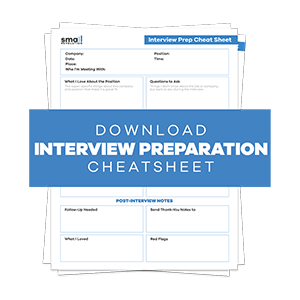Going to an interview unprepared is a risk you should avoid if you’re serious about getting a job. Too many people have gone into an interview without preparation and lost the job opportunity because they didn’t answer the questions well.
We advise you to conduct thorough research on the company you want to work for, as well as researching the position you’re applying for. This will put you at ease and help you answer questions confidently.
During an interview, the interviewer wants to find out this information from you:
- How interested you are in the job
- How skilled you are in writing a resume
- How you handle difficult situations
- What makes you better than the other candidates
- What else you can bring to the table
We’ll also give you answers to these questions:
- Which questions can I ask the interviewer?
- What else takes place during an interview apart from questions?
- What do I do after the interview is over?
We will walk you through these questions and show you how to answer them confidently.
Q1: What Motivates You to Write Resumes?

Here, the interviewer wants to know the driving force behind your passion for writing resumes.
Once they find out what drives you, they’ll compare it with their company’s mission and values to see if they align. You may have a very good resume, but interviewers also want to ensure that your values align with their company values.
How to Prove You Are Highly Motivated
What makes your eyes light up when you think of resume writing? If you can pinpoint it, then that is what motivates you.
Remember, your motivation must align with the company. If your research showed you that the company is genuinely motivated to help others get jobs through crafting excellent resumes for them, answer the question like this:
I am primarily motivated to help others have easy access to jobs by crafting compelling resumes and applications. After growing up in hardship, I know how it feels to endlessly search for a job without success.
I understand that for most people, it’s not that they are not qualified, but they are held back from success by their inability to market themselves through their resumes. I specifically trained as a resume writer due to a desire to overcome this problem.
When I look back at how the people I helped have landed their dream jobs, it truly feels rewarding.”
With these answers, the interviewer will be able to pick up on your enthusiasm and clearly see that your motivation aligns with that of their company.

Q2: What Are the Keys to Crafting a Resume That Sells?
The interviewer’s purpose for this question is to gauge your research, writing, and communication skills. Let us break them down:
- Research skills: How well you can research your client’s background to gather solid information about them.
- Writing skills: How well you are able to organize and summarize the most significant elements of that information.
- Communication skills: The persuasive tone you use to market your client through their resume.
How to Flaunt Your Killer Resume-Crafting Skills
Now that you know the interviewer is interested in your research, writing, and communication skills, proceed to answer as follows:
The first key is to get as much information about the client as possible. If I feel it is not enough, I ask to get more information from their social media profiles and other sources.
I then make sure to incorporate keywords from the job description my client gives me. I know it’s important to use keywords and arrange the information strategically because I understand employers are busy. This tactic will help them find pertinent information as they skim through the resume.
Finally, I use powerful marketing language that highlights my client’s specific skill set, which really works in persuading the employer.”
These are skills that you already possess as a resume writer. The key here is to articulate them well so that the interviewer will pick up on them through your response.
Q3: How Do You Tackle Writing Resumes for Clients With Little to Zero Job Experience?

This question is a clear indication that the interviewer wants to know if you have problem-solving skills. These are soft skills that prove your personal strength, as opposed to hard skills that are gained through training or education.
When you’re asked this question, know that this is what the interviewer is interested in:
- What alternatives can you generate for a client with little or no job experience?
- What criteria do you use to choose the best alternatives among these?
- How do you implement the alternatives you have selected?
- How do you evaluate whether your implementations are successful?
How To Demonstrate Your Problem-Solving Skills
Writing a resume for a client without job experience is indeed tricky and requires you to step outside the box. This is your chance to showcase your creativity.
Answer in this manner:
My approach to this situation is to ask the client about their other personal and professional accomplishments. Most clients think that since their other accomplishments are not directly related to this job, they don’t matter. They actually matter a lot, as they are proof of their communication skills, teamwork, and work ethic.
I consider hobbies as well because they are proof of my client’s interests and passion. I always choose alternatives that are closely related to the job description and then proceed to craft a stunning resume.
I then follow up with these clients to find out how effective the resume was so that I can know what to apply in the future.”
Expert Tip: State confidently how you also include the client’s internships, projects, and languages learned into their resume.
Ready to Sit In That Interview Chair?
Armed with this information, you can now proceed to the interview with your head held high, right? Wrong.
Just when you think you’re done, the interviewer might ask you, “Apart from resume writing, what else do you bring to the table?”
This could be your chance to land another role. Don’t rush—your big break might come from this moment. Carefully describe the other skills you have that would benefit the company. Most employers are looking for soft skills because they are harder to come by.
The table below shows the hard and soft skills you should have as a resume writer.
| Skills Type | Characteristics | Examples |
| Hard skills | Measurable and teachable |
|
| Soft skills | Measurable but not easily teachable |
|
We can help you gain additional skills that will improve your chances of landing multiple roles during interviews. We do this by providing job seekers like you with knowledge on how to excel in their jobs.
I am proud to inform you that I am now a virtual assistant. Thank you eCommerce University for guiding me.”
Dennis
Visit our website at Small Revolution to see our eCommerce copywriting, virtual assistant, and customer service courses.
Frequently Asked Questions
Which questions can I ask at an interview?
- What do you expect me to accomplish within three months of being with the company?
- How do you measure success in this role?
- Who will I be working closely with?
What else takes place at an interview apart from questions?
You might be given a case study that outlines the problems you’ll encounter in your career, which requires you to use your problem-solving skills. You may also be given a practical test like writing a resume to prove your resume writing skills.
What do I do after an interview?
- Send a thank you note within 24 hours.
- Prepare for a possible second interview by working on your answers.
- Follow up if the company takes too long to respond.
Expert Tip: Follow-ups are done once, and professionally.
Share on Facebook:



